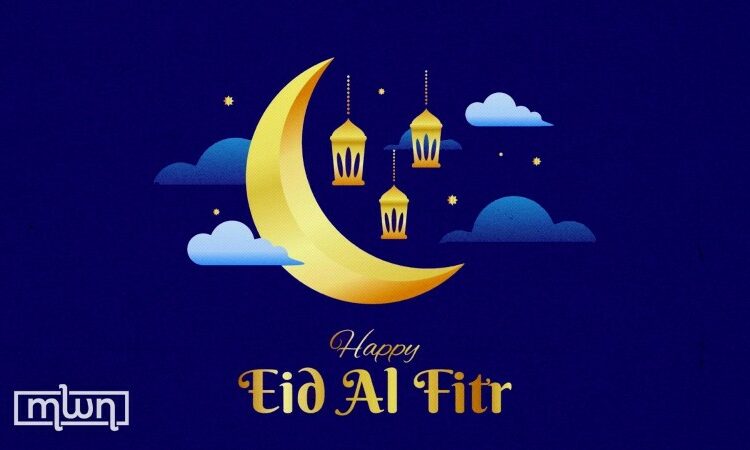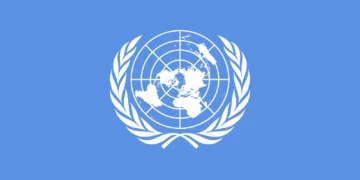Muslim faithful in Nigeria today join other Muslims worldwide to celebrate this year’s Eid-el-Fitr, thus marking the end of the holy month of Ramadan. According to recorded history, Muslims celebrated Eid-el-Fitr for the first time on 1st Shawaal 2 Hijrah (27th March 624 AD) after the Ramadan fasting was declared obligatory.
Abdudallahi bin Abbas (RA) quotes the Prophet Muhammad (Peace Be Upon Him) as saying: “When the night of Eid-el-Fitr comes, it is called in the Heavens as Lailatul Jaza (The Night of Reward) and on the day of Eid, Allah sends down Angels on the earth who call the praise of Allah, in a voice audible to every creature except human beings. They call on believers to rush to the ‘House of the Master’, who bestows most graciously His blessings and forgives sins.
Allah answers and accepts the prayers and worship by Muslims performed during the holy month of Ramadan by forgiving their sins and granting them whatever they ask for in the Eid congregation for their worldly needs and in the Hereafter. Allah says in the Holy Quran: “I shall have all your shortcomings covered as long as you remember Me. You (believers) shall not be disgraced before offenders and infidels. And so you return home all forgiven”.
However to qualify or benefit from this, Muslims must not neglect or forget the needy and poor on this day of rejoicing and festivity as one of the foremost duty of a Muslim on the day of Eid is to search for the poor people in their vicinity and fulfill their immediate needs in the spirit of love and brotherhood.
The day of Eid is essentially a Thanksgiving Day, when Muslims visit friends, neighbours, sick persons, the elderly, the poor, the needy and infact all persons, regardless of social status. The main event, of course, is the religious service when one offers prayers and listens to the inspirational address of the Imam on relevant matters concerning the significance of the occasion.
Eid-el-Fitr should remind one of the many lessons learnt from fasting and which, during the holy month of Ramadan, one should have kept in mind and to have practiced. One of them is the offering of the early morning (Fajr) prayer before sunrise and also the efficacious pre-dawn (Tahajjud) prayer which is highly recommended. Muslims should realize that it is not difficult to rise early and offer these prayers at the proper time; if one can discipline oneself to do so during the month of fasting (Ramadan) then it is not impossible to continue to do so during the other months of the year.
On Eid-el-Fitr, one should reflect on one’s condition of spiritual improvement and resolve not to lose what one has gained but rather, not only to maintain it, but press forward to even higher spiritual development though righteous conduct, prayer and seeking the Grace of God. Also, Eid is the day when petty friction and bitterness, if any, should be sunk once and for all. We must embrace each other with heart free from malice and rancor.
Indeed, the cardinal message is that although Eid-el-Fitr signifies the end of Ramadan, the doctrines of moderation, avoidance of excessive consumption, piety, regular supplication to Allah, and being a brother’s keeper subsist always beyond the Ramadan.
This year’s Eid-el-Fitr celebrations however will be significantly different due to the high cost of living currently faced by most Nigerians, especially the lower- and middle-income class. From high cost of foodstuffs to steep rise in prices of different services, Nigerians are having it tough.
Government’s economic policies including the removal of fuel subsidy, floating of the naira and the recent hike in electricity tariff, all contributed to make life difficult for most Nigerians. It is under these excruciating conditions that the Muslim ummah will mark the eid.
But even as the muslim ummah mark this eid under such difficult conditions, we remind them of the need to imbibe the spirit of Ramadan which precede the eid-l-fitr by assisting the less privileged in whatever way they can.
It is good to note that to make the eid festivity more joyous for all, those who have the means are mandated to give zakat ul fitr, a charitable donation of food given to the needy before the Eid prayer. The essence is so all can have food to celebrate the eid.
Let us merry and have faith that in sha Allah, the current hardship will pass.
We congratulate all Muslims on the dawn of this Holy month of divine opportunities and encourage them to seize every moment to pray for an end to the coronavirus pandemic.





